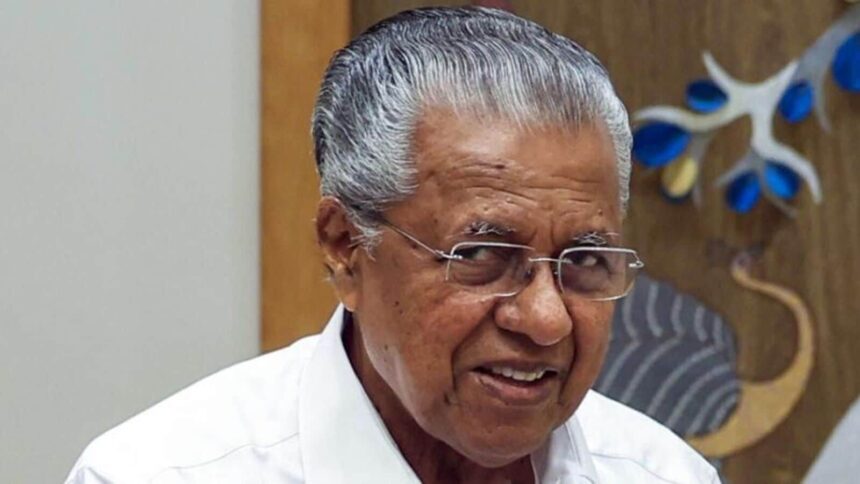The Controversy Surrounding Kerala Chief Minister Pinarayi Vijayan’s Remarks on Sanatana Dharma
In a recent public address, Kerala Chief Minister Pinarayi Vijayan’s comments on Sanatana Dharma have ignited a political firestorm, drawing sharp criticism from both the Bharatiya Janata Party (BJP) and the Congress party. This debate, marked by rich cultural and political implications, brings into focus the complex interplay of religion, tradition, and modern values in India’s diverse landscape.
Understanding Sanatana Dharma
Sanatana Dharma, often equated with Hinduism, is a term that reflects the age-old traditions and spiritual practices of India. It encompasses a wide range of beliefs and practices and is often seen as a way of life for many adherents. However, interpretations of what it embodies can vary widely among different groups, leading to substantial debate, especially in the political arena.
The Origins of Controversy
The political uproar began on December 31, when Vijayan asserted that Narayana Guru, a revered social reformer and proponent of social equality, should not be identified as a supporter of Sanatana Dharma. Instead, he emphasized Guru’s opposition to the Varnashrama system, which rigidly delineates caste roles, pointing out that Narayana Guru championed a secular humanistic worldview and concepts such as "One Caste, One Religion, One God."
Vijayan’s remarks were made during an event connected to the annual pilgrimage to Sivagiri Mutt, which Guru founded in Varkala. His assertion aimed to reclaim the narrative surrounding Guru’s legacy from political agendas that leverage Sanatana Dharma to fuel sectarian divides.
Political Responses
In the wake of these statements, opposition leader in Kerala from the Congress party, V.D. Satheesan, accused Vijayan of twisting the very essence of Sanatana Dharma. He argued that it should be regarded as a cultural heritage for all Indians and cautioned against conflating these traditions with contemporary political ideologies, which he described as "saffronisation."
Meanwhile, Vijayan’s supporters accused Satheesan of aligning himself with forces undermining Kerala’s long-established secular values. CPI(M) leader Isaac’s commentary shed light on the ongoing tensions: he highlighted Satheesan’s perceived negligence toward the broader implications of BJP’s influence in Kerala politics.
BJP’s Critique
The BJP entered the fray, calling Vijayan’s statements an affront to Hindu philosophy. Senior leader V. Muraleedharan chastised the Congress for its contradictory stance, noting the disparity between the Kerala Congress president’s endorsement of Vijayan’s comments and Satheesan’s criticism.
Muraleedharan stated, "I would like to know what Congress stands on this. There is a huge issue that has come up in Kerala where the Chief Minister of the state has tried to malign the Hindu philosophy." This clash highlights the fractious dynamics within Kerala’s political landscape, where traditional ideologies are often used as vehicles for broader political aspirations.
Implications for Secularism in Kerala
The debate raises essential questions about the nature of secularism in Kerala. Historically, the state has prided itself on harmonious coexistence among various religious communities, but rising political tensions threaten to fracture this delicate equilibrium. The alignment of spiritual narratives with political strategies could potentially affect social cohesion, prompting discussions among scholars and practitioners alike on the future trajectory of secularism in the region.
Conclusion
The exchanges between Vijayan, Satheesan, and the BJP illustrate the complexities of negotiating cultural identity within the evolving framework of contemporary politics. As Kerala navigates through this crisis, the discussions surrounding Sanatana Dharma are set to be pivotal in shaping not just political outcomes, but also societal values in the state. The ongoing social dialogue will serve as a thermometer for Kerala’s commitment to maintaining its secular character in the face of rising sectarian challenges.
As this controversy unfolds, it remains essential for the people of Kerala to engage in thoughtful dialogue about their heritage, identity, and the place of spirituality in public life, ensuring that the rich tapestry of their culture continues to thrive amidst political intrigue.









